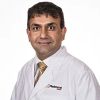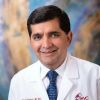How Regular Health Screenings Can Catch Heart Disease Early
Heart disease is a leading cause of death in the United States, yet many people are unaware of the risks they face until it's too late. Regular health screenings provide a vital opportunity for early detection, allowing healthcare professionals to identify potential heart problems before they become life-threatening. In this article, we explore how these screenings work, their importance in preventing heart disease, and how they can help you maintain a healthy heart.
```The Importance of Early Detection
Early detection of heart disease can save lives. The earlier a problem is identified, the sooner you can start treatment or make lifestyle changes that can prevent further complications. Heart disease often develops silently, without obvious symptoms in its early stages. Conditions like high blood pressure, high cholesterol, and diabetes are risk factors that contribute to heart disease but may not cause immediate signs or symptoms. Regular health screenings can detect these underlying issues long before they manifest in noticeable symptoms, giving you and your doctor a head start on managing them.

How Regular Screenings Work
Health screenings typically include tests that monitor key indicators of heart health, such as blood pressure, cholesterol levels, blood sugar levels, and more. Some common tests used to assess heart disease risk include:
- Blood Pressure Screening – High blood pressure (hypertension) is one of the leading contributors to heart disease. Regular blood pressure checks are essential for detecting this condition early.
- Cholesterol Test – Elevated cholesterol levels can lead to plaque buildup in the arteries, increasing the risk of heart attack and stroke. A cholesterol test helps track your levels and determine if intervention is needed.
- Blood Sugar Test – Diabetes is a major risk factor for heart disease. Regular blood sugar tests help detect early signs of diabetes, allowing for lifestyle changes or medications to be implemented before the condition progresses.
- Electrocardiogram (ECG) – An ECG can detect irregular heart rhythms (arrhythmias) or other issues with the heart's electrical system that could indicate underlying heart disease.
Why You Should Make Screenings a Priority
Many individuals don't seek out health screenings unless they feel ill, but this approach often misses the early signs of heart disease. The Centers for Disease Control and Prevention (CDC) recommends that adults 20 and older undergo regular health screenings every 2-4 years, depending on risk factors. If you have a family history of heart disease, are overweight, or have other risk factors such as smoking or high stress, your doctor may suggest more frequent screenings.
For instance, consider the story of Susan, a 45-year-old woman who went in for a routine check-up. During her screening, her doctor discovered that her cholesterol levels were dangerously high, putting her at risk for heart disease. Thanks to the early detection, Susan was able to take immediate steps to reduce her cholesterol and improve her lifestyle, avoiding a potential heart attack in the future.
Deborah Heart and Lung Center
deborah heart and lung center
200 Trenton Rd, Browns Mills, NJ 08015, USA

Risk Factors for Heart Disease
Heart disease doesn't affect everyone equally. Several risk factors increase your likelihood of developing heart disease, including:
- Age – As you age, your risk of heart disease increases. Men over the age of 45 and women over 55 are at higher risk.
- Family History – If you have a close relative who has had heart disease, your risk increases significantly.
- Lifestyle Factors – Poor diet, lack of physical activity, smoking, and excessive alcohol consumption all contribute to the development of heart disease.
- Chronic Conditions – High blood pressure, diabetes, and high cholesterol increase your chances of developing cardiovascular issues.
The Role of Preventive Healthcare in Heart Disease
Preventive healthcare is a proactive approach to maintaining your health and well-being, and it plays a crucial role in heart disease prevention. Regular health screenings are an essential part of preventive care, allowing for early detection and the opportunity to take corrective actions before heart disease progresses. In addition to screenings, preventive measures include maintaining a healthy diet, engaging in regular exercise, managing stress, and avoiding smoking.
Prevention doesn't stop at screenings. If a screening reveals potential heart issues, your doctor will work with you to create a tailored plan to reduce your risk. This may include lifestyle modifications, medications, or other interventions aimed at keeping your heart healthy.
Story of Early Detection: A Real-Life Example
Mark, a 55-year-old man from New Jersey, had always been active, but after years of neglecting his health screenings, he began to experience shortness of breath. During his visit to the doctor, a routine screening revealed that he had a high level of cholesterol, which was contributing to blocked arteries. Thanks to early detection, Mark was able to make the necessary changes, including adopting a healthier diet and starting a regular exercise routine. His story illustrates how taking the time for routine screenings can make a world of difference in managing your heart health.
What Happens If You Skip Regular Screenings?
Skipping regular health screenings can lead to undiagnosed heart issues that may eventually result in serious complications, including heart attack, stroke, or heart failure. Without early intervention, many of the risk factors for heart disease can worsen, and the opportunity for prevention is lost. Even if you feel fine, getting checked regularly is the best way to ensure your heart stays in top condition.
Don’t wait until it’s too late—make heart disease screenings a priority in your health routine. Early detection and preventive care can keep your heart healthy for years to come.
```





















Hoag Urgent Care Irvine - Sand Canyon
hoag urgent care
16205 Sand Canyon Ave Suite 100, Irvine, CA 92618, USA